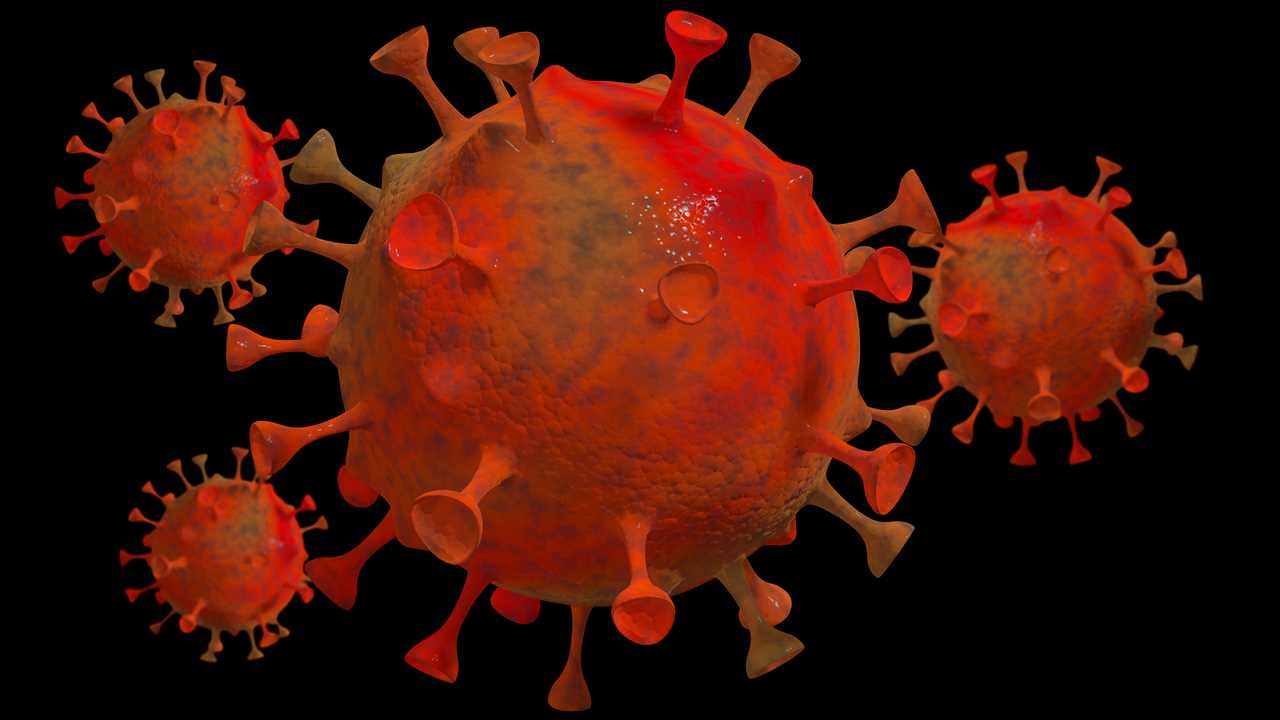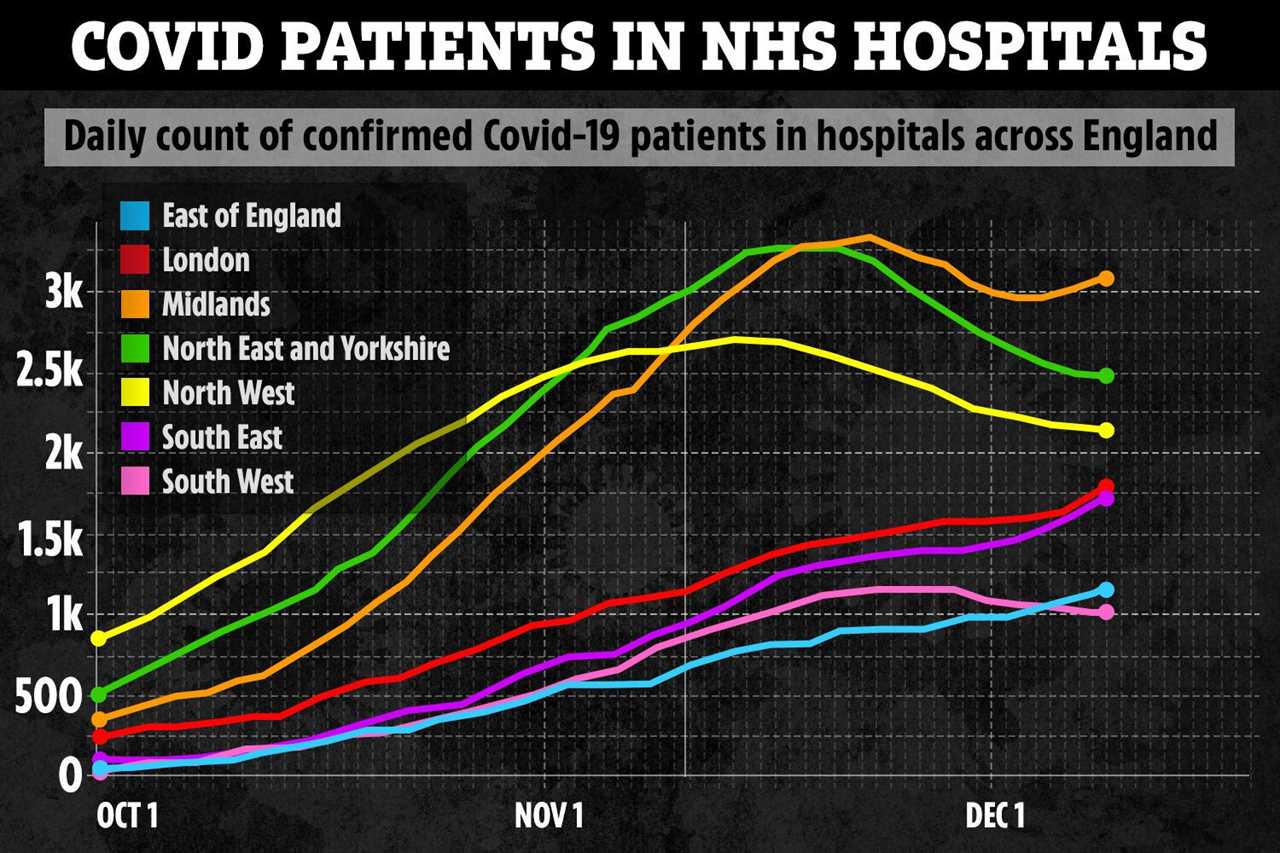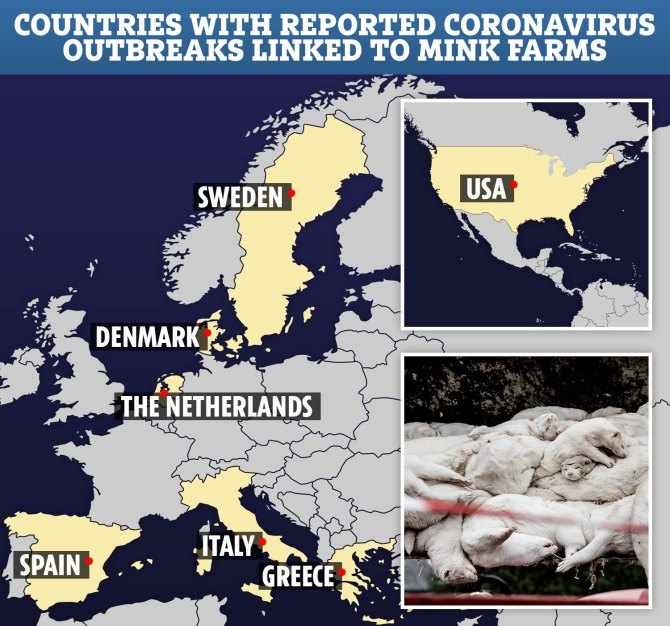A NEW strain of Covid-19 is spreading across the UK, casting doubt on the effectiveness of the vaccine.
Health chiefs revealed the new variant of coronavirus has caused at least 1,0000 cases so far, mostly in South East England

It was first identified in Kent last week during routine surveillance by Public Health England (PHE), with ministers told about it on Friday, Sky News reported.
Kent is currently fighting an uphill battle with the disease, and has some of the highest Covid cases in the UK despite the toughest restrictions being in place since December 2.
The Health Secretary Matt Hancock said the variant may be fuelling the “faster spread” in South East England.
London, parts of Essex and Herefordshire have now been moved into Tier 3 to cope with the “very sharp, exponential rises” in cases.
The numbers of cases linked with the latest mutation are growing “rapidly”, Mr Hancock said, as he urged everyone to stick to the Covid restrictions.
Government scientists at PHE’s Porton Down lab are analysing the strain “right now”, Mr Hancock said.
But he said it was “highly unlikely” the new strain would make the vaccine ineffective – which other experts agreed with.
Professor Chris Whitty, the Chief Medical Officer for England, admitted in the long term, mutations can make the virus resistant to the vaccine.
But scientists have weighed in to say changing the vaccine would not be a difficult task.
What is the new Covid strain?
Mr Hancock told the Commons yesterday afternoon a new variant of coronavirus has been identified in England in the “last few days”.
In a statement, Mr Hancock said: “Over the last few days, thanks to our world-class genomic capability in the UK, we have identified a new variant of coronavirus.”
Mr Hancock said the numbers of the new variant of coronavirus “are increasing rapidly”.
He told the Commons: “Initial analysis suggests that this variant is growing faster than the existing variants.
“We’ve currently identified over 1,000 cases with this variant predominantly in the South of England although cases have been identified in nearly 60 different local authority areas.
“And numbers are increasing rapidly.”

He added that it shows we’ve got to be vigilant, “follow the rules and take personal responsibility not to spread this virus”.
Mr Hancock said “similar variants” had been found in other countries.
Dr Bharat Pankhania, a senior clinical lecturer in disease control, University of Exeter, said the strain may not be able to spread faster.
He told Sky News: “I don’t think it is faster spread, is it more a case of it is more predominant. That is the strain that wishes to circulate in our population.”
Prof Whitty said: “The idea that new mutations might become more likely to spread is not particularly surprising, because biologically that’s an advantage to the virus, whereas there’s no particular advantage to making you more sick than other things. There’s no evolutionary advantage so there won’t be a strong pressure on that.”
The Health Secretary Matt Hancock said the variant may be fuelling the “faster spread” in South East England.
But Prof Whitty the decision to move London and parts of the south-east of England into Tier 3 was not a result of the new variant.
Will the Covid vaccine work against the new strain?
Mr Hancock said the “latest clinical advice is that it’s highly unlikely that this mutation would fail to respond to a vaccine”.
The vaccine being rolled out in the NHS – from Pfizer and BioNTech – would not have been tested to see if it protects against this new strain.
But all Covid-19 jabs that have been developed focus on the same target – the spike protein on the surface of the virus.
The spike is what the virus uses to latch onto human cells, invade and replicate.

There may occasionally be a mutation whereby the spike finds it easier to bond to cells. And if the spike looks different in appearance, the body may not recognise it as Covid-19, and quickly mount an immune response.
It cannot be ruled out that a new mutation of the virus that changes this spike would affect the efficacy of a vaccine.
New flu vaccines have to be developed every year because the “predominant” strain changes annually.
Wendy Barclay, a member of the Scientific Advisory Group for Emergencies, said in November that there was a “worry” that the coronavirus mutations mean that the vaccines “won’t work so well as we’d hope them to.”
Prof Wendy Barclay, head of the Department of Infectious Disease, Imperial College London, said today: “Some variants with changes in the Spike protein have already been observed as the virus is intensely sequenced here in the UK and around the world.
“This variant contains some mutations in Spike protein that is the major target of vaccines, and it will be important to establish whether they impact vaccine efficacy by performing experiments in the coming weeks.”
However, Dr Pankhania told Sky News today: “I am very confident that we won’t have to refashion our vaccines, because what we are looking at is a large spike protein
“There is not information that this spike protein changes dramatically over months or years.
“If the spike protein isn’t really changing, but is showing minor changes, I expect our immune system not to be fooled by a new version of it, therefore old immunity should last with new immunity.
“And if that isn’t the case, it still doesn’t matter, we can refashion the vaccines very quickly to make spike protein pertaining to the new strain
“Don’t worry about this – these things are common and these things do happen.”
Calum Semple, a professor of outbreak medicine, University of Liverpool, agreed that even if the vaccine needs to change, it is not a bad thing.
He told BBC Breakfast: “Some of the mutations are occurring in the key that the virus uses to unlock cells. We see this with flu each year, which is why the vaccine has to change year on year.
“The new vaccines are essentially like emails we send to the immune system. They are very easy to tweak.
“If we know the lock has changed slightly, we just edit that email and the vaccine will be ready 6-8 weeks after that, and will be competent and better targeted at the new strain.”
He added that most people would be carrying strains that have been around for several months, which the vaccine is known to work against.
He said: “The current vaccine will be effective for them, and we would expect the vaccine to still be reasonably effective, because it is 95 per cent effective, so even if we dropped a few percentage points, it’s still going to be good enough – and much better – than vaccines on the market.”
Are new Covid strains more deadly?
Mr Hancock told MPs: “I must stress at this point that there is currently nothing to suggest that this variant is more likely to cause serious disease.”
Essentially this means that if someone was to catch this strain, they wouldn’t become more sick than if they were to catch the “original” one.
However, if the strain has the ability to spread at a faster rate, it may make it more difficult to contain and protect vulnerable groups.
Dr Andrew Davidson, a reader in virology at the University of Bristol, said “a virus that spreads more easily will hamper control efforts”.
Mr Hancock said: “When the virus moves quickly, we need to, too.”
None of the mutations of the coronavirus documented so far appear to make Covid-19 spread more rapidly, scientists at University College London said in November.
How dangerous is the new Covid strain?
Mutations are the result of a normal biological process, and when they have previously been identified during the pandemic, scientists have not panicked.
Dr Pankhania said mutations can be thought of like a branch growing off a tree in that they are natural, and can become a prominent part.
Mr Hancock said the strain is being “assessed in Porton Down right now”.
“But as I said in my statement, the medical advice that we have is that it is highly unlikely that this new variant will impinge the vaccine and the impact of the vaccine.
“But we will know that in the coming days and weeks as the new strand is cultured at Porton Down and then, of course, the tests conducted upon it.”

Alan McNally, Professor in Microbial Evolutionary Genomics at the University of Birmingham, said: “Huge efforts are ongoing at characterising the variant and understanding its emergence.
“It is important to keep a calm and rational perspective on the strain as this is normal virus evolution and we expect new variants to come and go and emerge over time.
“It’s too early to be worried or not by this new variant, but I am in awe of the surveillance efforts in the UK that allowed this to be picked up so fast.”
Jonathan Ball, Professor of Molecular Virology, University of Nottingham, said: “The genetic information in many viruses can change very rapidly and sometimes these changes can benefit the virus – by allowing it to transmit more efficiently or to escape from vaccines or treatments.
“But many changes have no effect at all.
“Even though a new genetic variant of the virus has emerged and is spreading in many parts of the UK and across the world, this can happen purely by chance.
“Therefore, it is important that we study any genetic changes as they occur, to work out if they are affecting how the virus behaves, and until we have done that important work it is premature to make any claims about the potential impacts of virus mutation.”
Professor Tim Spector, Principal Investigator of the ZOE Covid Symptom Study app, said on Twitter: “Virologists don’t seem to be worried so far – mutations have been slow and of only tiny differences so far.”
What was the mink strain of Covid?
It’s not the first time the UK has been warned of a new Covid strain.
Most recently strains of the coronavirus discovered in farmed mink threatened Europe’s fight against the deadly disease.
Minks in Denmark were infected with the virus that causes Covid-19 following exposure from infected humans.
The World Health Organization said coronavirus strains infecting minks, which are subsequently transmitted to humans, may have acquired “unique combinations of mutations”.
Six countries – Denmark, the Netherlands, Spain, Sweden, Italy and the US – have reported the virus in farmed minks, dating back as far as June.
It triggered the cull of millions of farmed mink in Denmark after authorities found genetic changes they said might undermine the effectiveness of Covid-19 vaccines.

Scientists in Denmark are carrying out genetic studies on mink-related strains, and the genetic data has been shared with other researchers, to allow further investigation.
Recently The Irish government ordered that the animals be culled, despite tests carried out on the country’s mink herd not detecting any positive results of the virus to date.
What other “mutant” strains have we seen?
British scientists are monitoring 4,000 deadly strains of coronavirus already, with the understanding that there are tens of thousands of mutations since the virus first emerged a year ago.
Scientists from UCL, along with experts from Cirad, the Universite de la Reunion and the University of Oxford, recently published a review of strains that have been discovered so far.
They analysed a global dataset of virus genomes from 46,723 people, collected up until the end of July 2020.
The teams have so far identified 12,706 mutations in Sars-Cov-2 – the proper name for the coronavirus.
One specific variant (the D614G variant) has previously been detected and is thought to be the dominant strain in Europe before taking hold in the United States, Canada and Australia.
D614G “is believed to spread more easily but not cause greater illness”, Dr Davidson said.
In October, experts said a new mutation from Spain may have triggered the second wave in the UK.
The 20A.EU1 strain was first detected in June in farm workers in Catalonia and Aragon, researchers led by University of Bern, in Switzerland, said.
The strain was responsible for 90 per cent of new infections in Spain in June, and may have spread across Europe due to tourists visiting the country.
In September and October, the new strain accounted for around 50 per cent of infections in the UK, the study claimed.
But it’s so far unclear whether the strain had spread rapidly due to it being more contagious than others – or because of holiday makers.
Did you miss our previous article...
https://trendinginthenews.com/covid-19/redundancies-surge-to-record-highs-as-370000-lose-jobs-and-17million-now-unemployed






